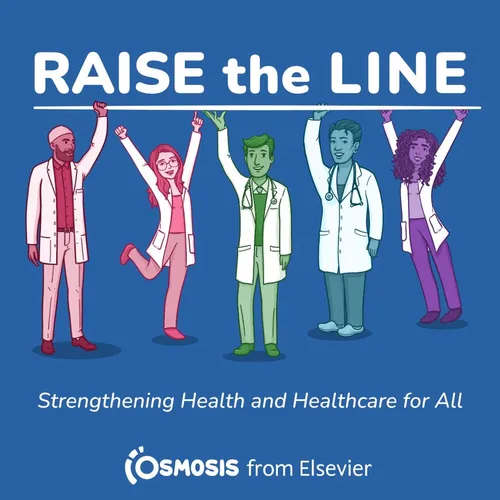
Raise the Line
Join host Lindsey Smith and other Osmosis team members for a global conversation about improving health and healthcare with prominent figures in education and healthcare innovation such as Chelsea Clinton, Mark Cuban, Dr. Ashish Jha, Dr. Eric Topol, Dr. Vivian Lee and Sal Khan, as well as senior leaders at organizations such as the CDC, National Institutes of Health, Johns Hopkins University, WHO, Harvard University, NYU Langone and many others.
- Update frequency
- every 5 days
- Average duration
- 27 minutes
- Episodes
- 540
- Years Active
- 2020 - 2025
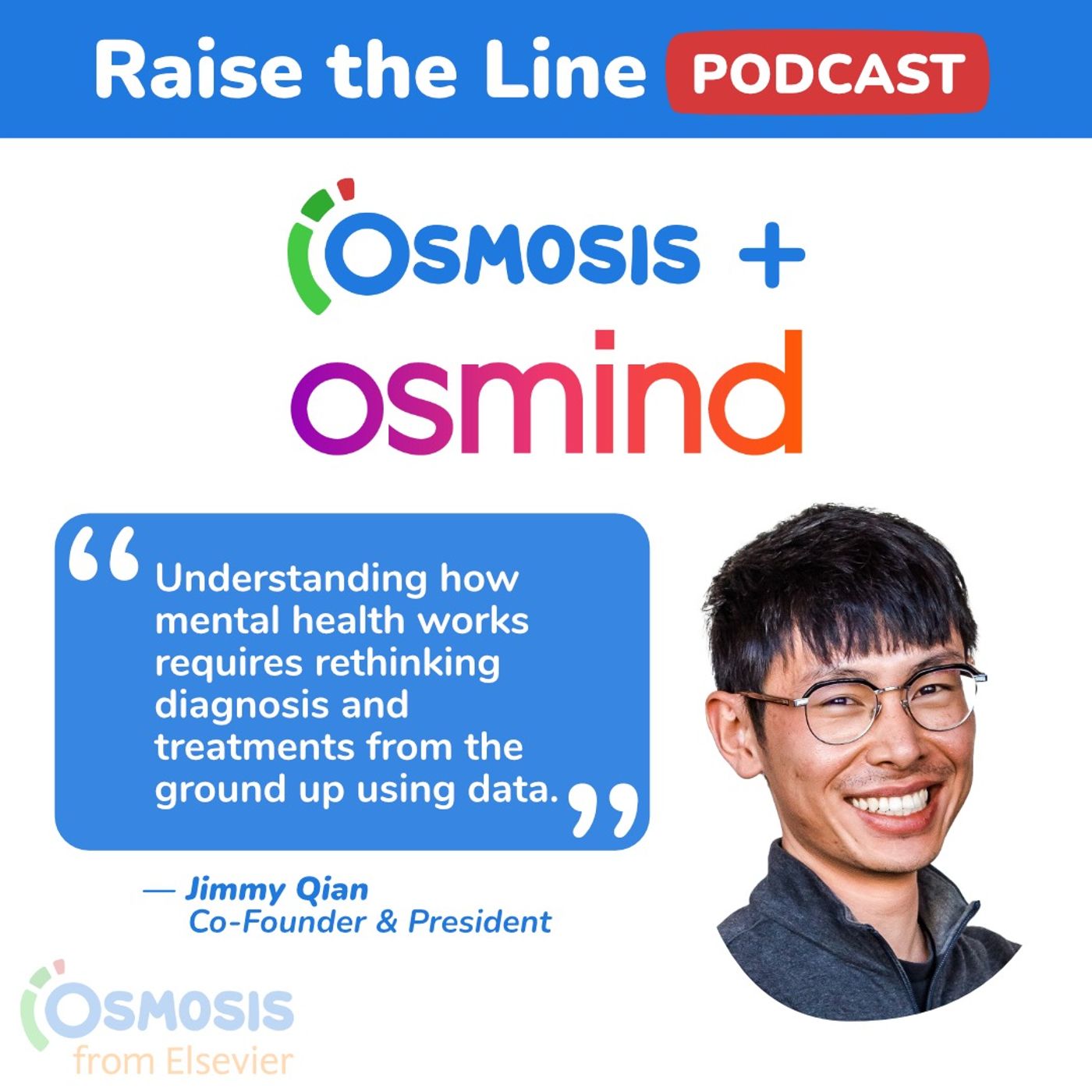
A Data-Driven Approach to Treatment Resistant Mental Health Conditions - Jimmy Qian, Co-Founder and President of Osmind
On this episode of Raise the Line, we’ll introduce you to a relatively new company in the digital health space focused on treatment-resistant mental health patients, which constitute about 30% of peo…

How Empathy Improves the Patient and Provider Experience - Dr. Helen Riess, CEO of Empathetics, Inc.
If you were to name one thing that could simultaneously increase patient satisfaction and reduce provider burnout, would empathy come to mind? Well, based on research published in peer-reviewed journ…

Capturing Cancer Signals to Aid Early Detection - Dr. Josh Ofman, President of GRAIL
The value of early detection is perhaps greater for cancer than many other diseases because it remains the second leading cause of death worldwide. On this episode of Raise the Line we're going to le…
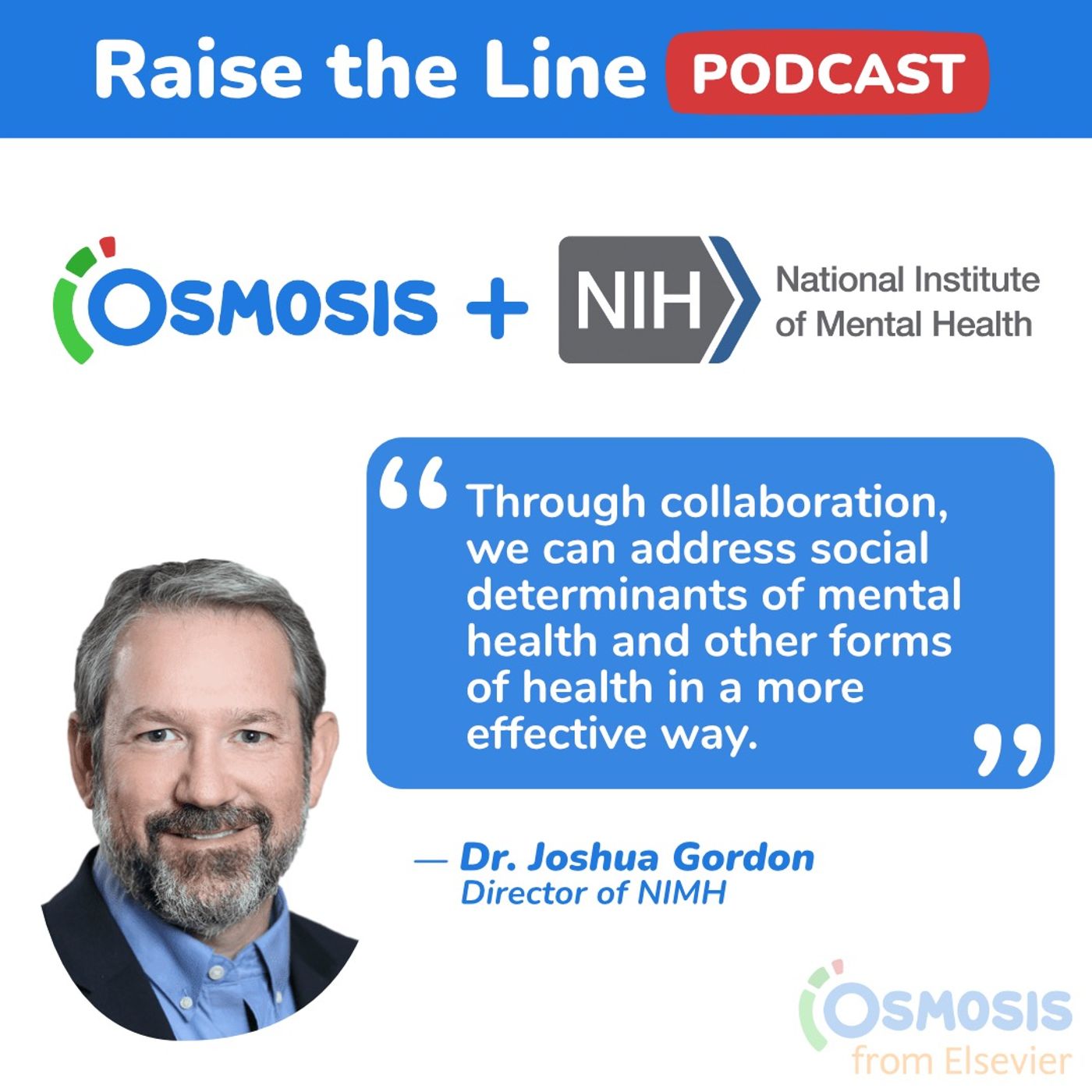
Science in the Service of Furthering Mental Health - Dr. Joshua Gordon, Director of the National Institute of Mental Health
On this episode of Raise the Line, we have the privilege of hearing from one of the nation's top healthcare leaders, Dr. Joshua Gordon, who is the director of the National Institute of Mental Health.…
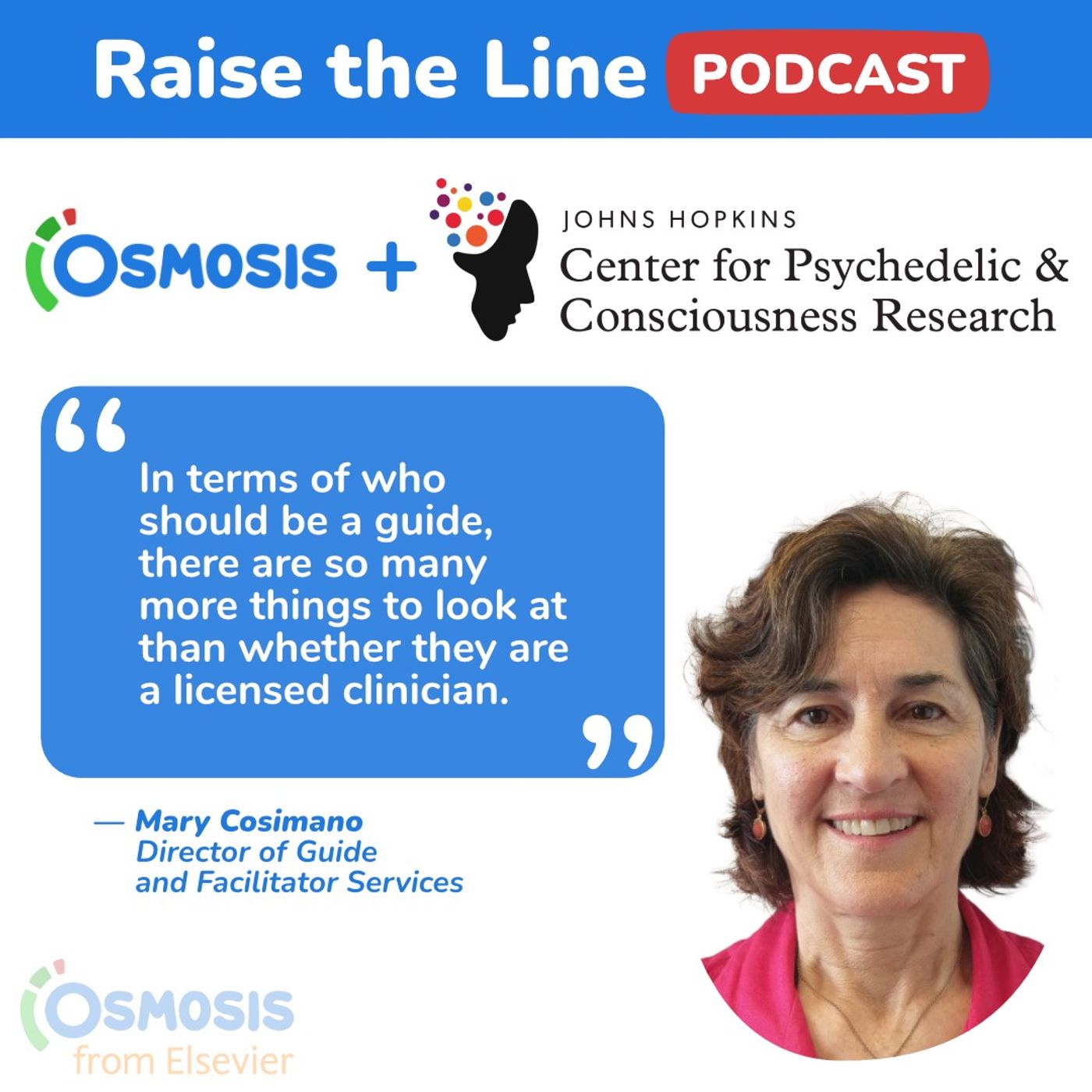
The Crucial Role of Psychedelic Therapy Guides - Mary Cosimano, Director of Guide and Facilitator Services at The Johns Hopkins Center for Psychedelic and Consciousness Research
The Crucial Role of Psychedelic Therapy Guides - Mary Cosimano, Former Director of Guide and Facilitator Services at The Johns Hopkins Center for Psychedelic and Consciousness Research
All of the prom…
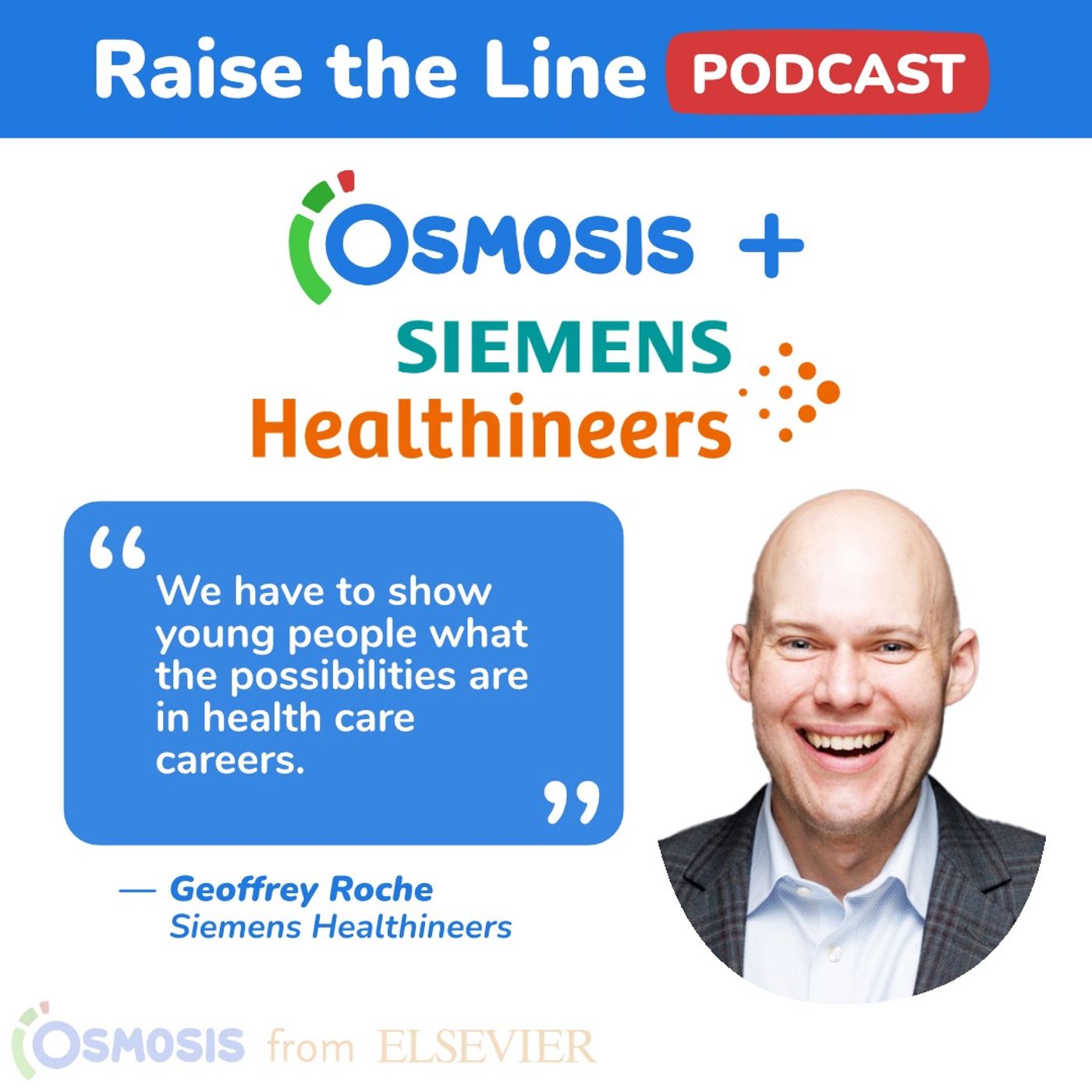
Partnerships Are Key to Building the Future Healthcare Workforce - Geoffrey Roche, Director of Workforce Development in North America for Siemens Healthineers
“We're really heading to a cliff when it comes to those expressing interest in healthcare careers,” cautions today’s Raise the Line guest Geoffrey Roche, director of Workforce Development in North Am…
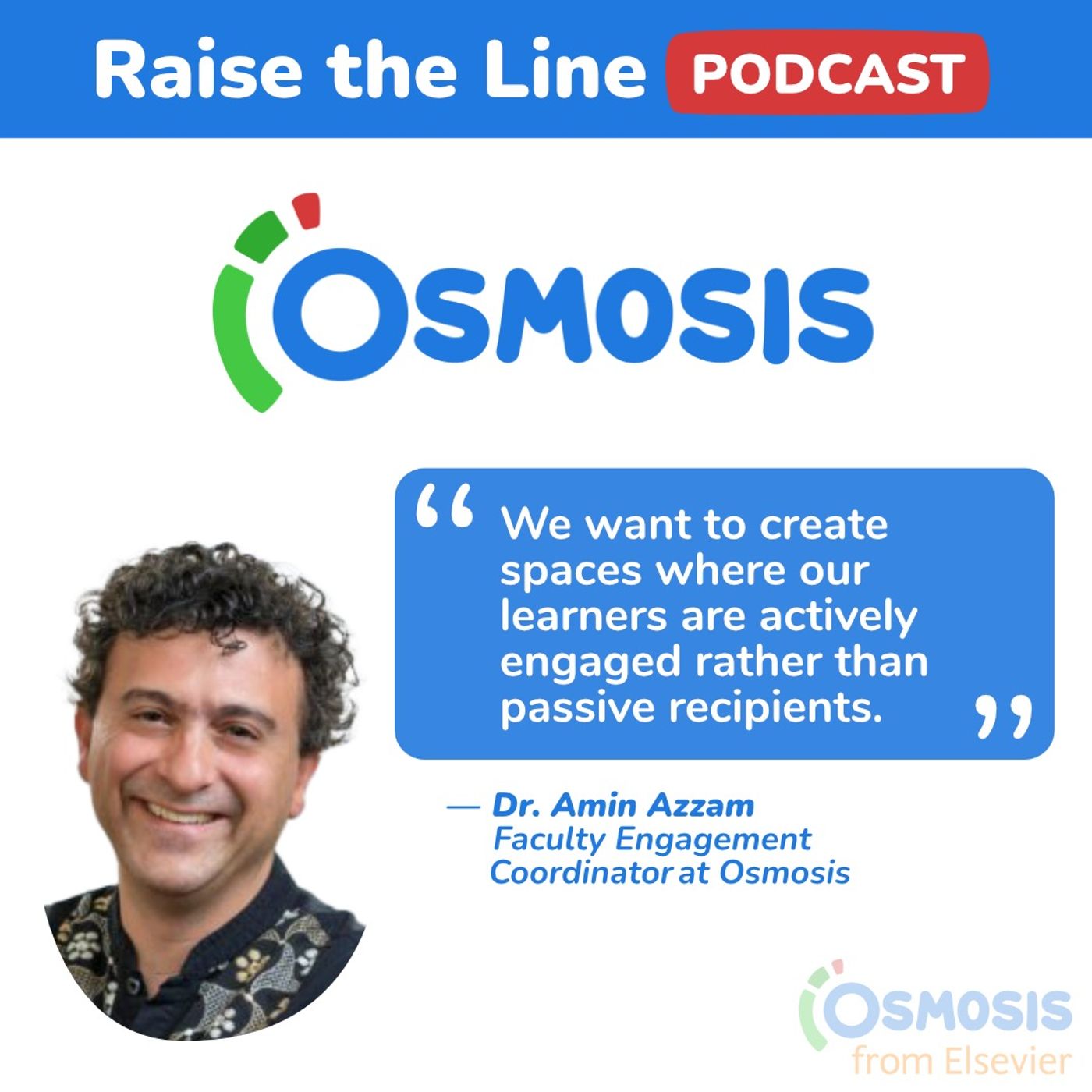
The Power of Active Learning and Engaged Learners - Dr. Amin Azzam, Faculty Engagement Coordinator at Osmosis
Active and fun are rarely the first words associated with medical education, but today’s Raise the Line guest, Dr. Amin Azzam, contends learners get the most value when they can engage with their edu…
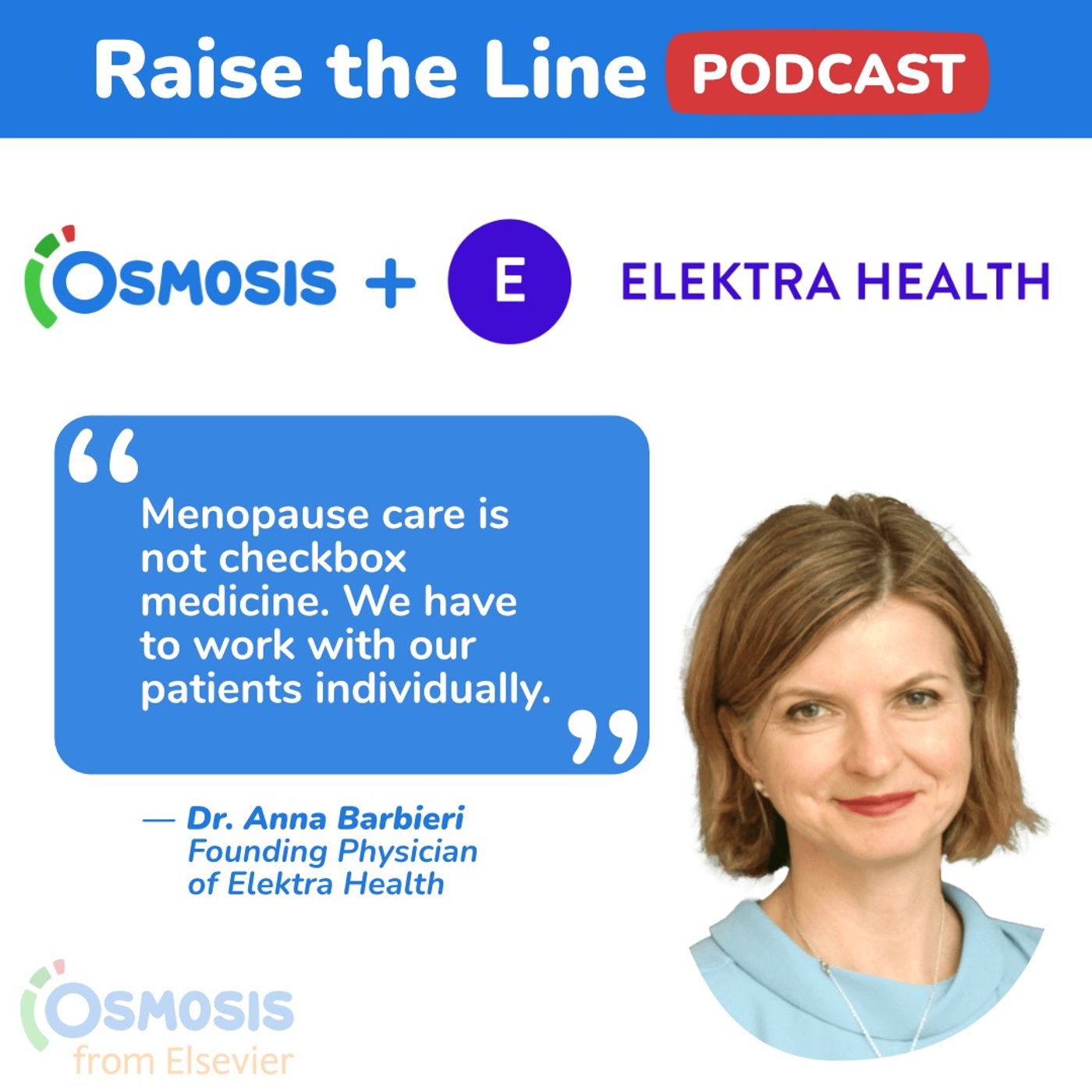
Forging a New Approach to Menopause Care - Dr. Anna Barbieri, Founding Physician of Elektra Health and Assistant Clinical Professor, Mount Sinai Health System
“When we say ‘treatment for menopause,’ it implies that menopause is a disease, when really it’s a normal and expected time of life,” says Dr. Anna Barbieri, an integrative medicine physician and spe…
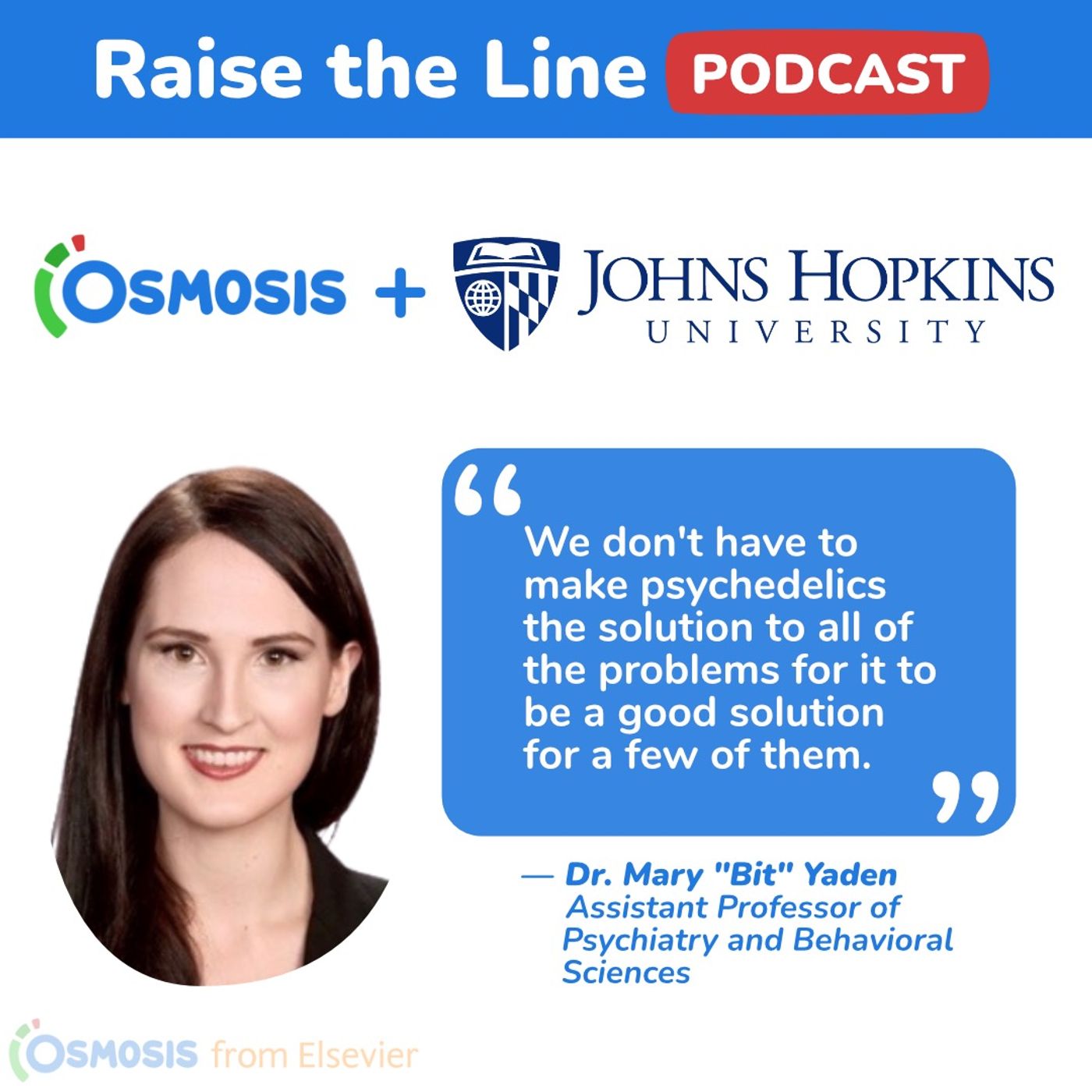
Understanding the Therapy Part of Psychedelic-Assisted Therapy - Dr. Mary "Bit" Yaden, Assistant Professor of Psychiatry and Behavioral Sciences at Johns Hopkins University
We've been careful on Raise the Line to use the term psychedelic-assisted therapy because, as we've heard from previous guests, these compounds are best administered in the context of a therapeutic r…
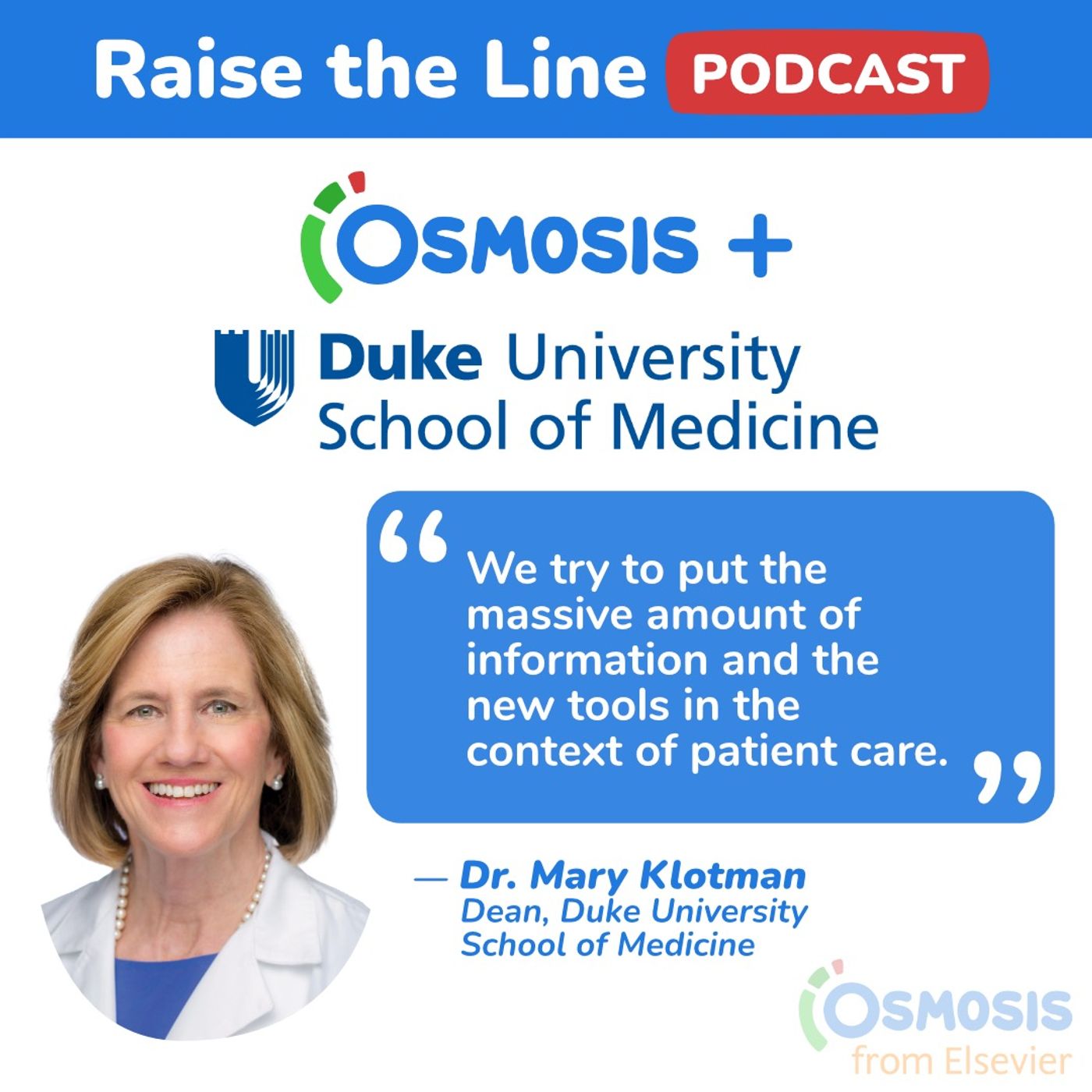
Innovating to Prepare Future Clinicians for New Roles - Dr. Mary Klotman, Dean of Duke University School of Medicine
“I really have challenged the students that have graduated from Duke the last couple of years to consider being ambassadors for science and for communication of what is good science,” says Dr. Mary K…
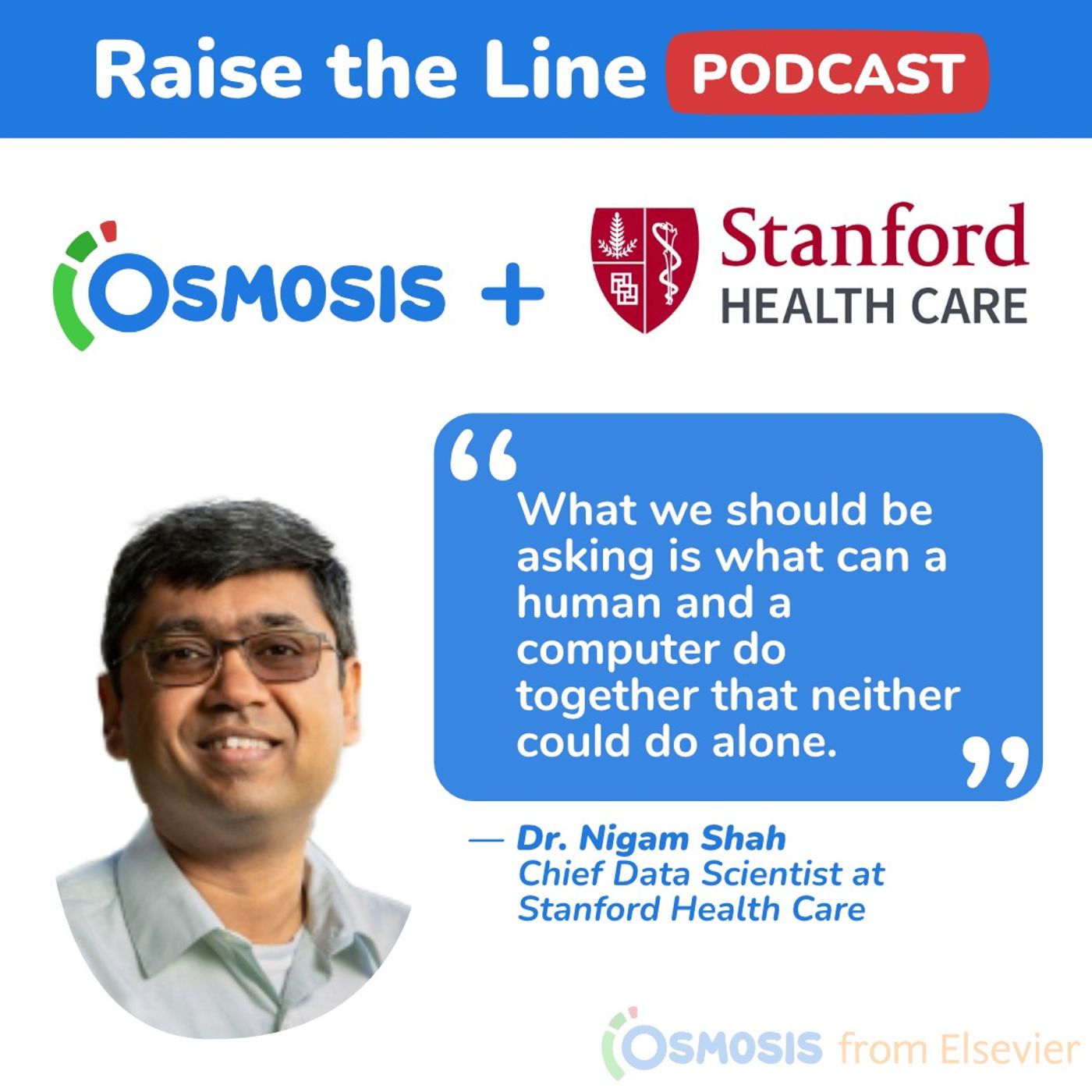
Don’t Fear the Power of AI, Leverage It - Dr. Nigam Shah, Chief Data Scientist at Stanford University
Instead of fretting about AI replacing jobs humans currently do, Dr. Nigam Shah is urging people to adopt a perspective about the technology that echoes President John Kennedy’s famous charge in his …

How Artificial Intelligence is Shaping the Work of Medical Educators - Dr. Adam Rodman, Co-Director of iMED at the Beth Israel Deaconess Medical Center
“What's really exciting and scary in medical education right now is we're seeing large language models enter the scene,” says today’s Raise the Line guest Dr. Adam Rodman, who is well-placed to make …
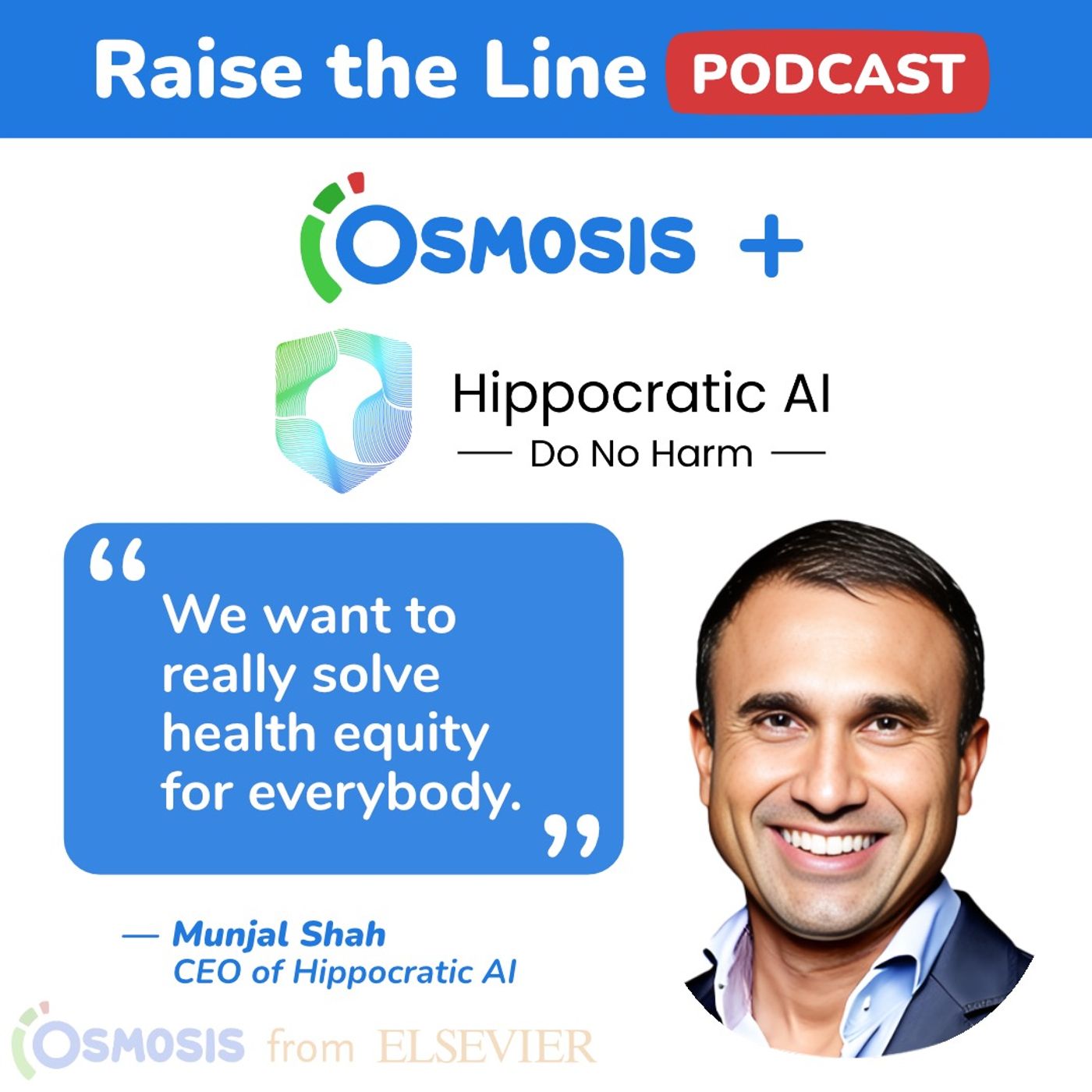
Is Artificial Intelligence the Answer to Health Equity? - Munjal Shah, CEO of Hippocratic AI
When Munjal Shah and his colleagues chose to use Hippocratic in the name of their new AI-based company, it wasn’t just about signaling their product was involved with healthcare, it was also intended…
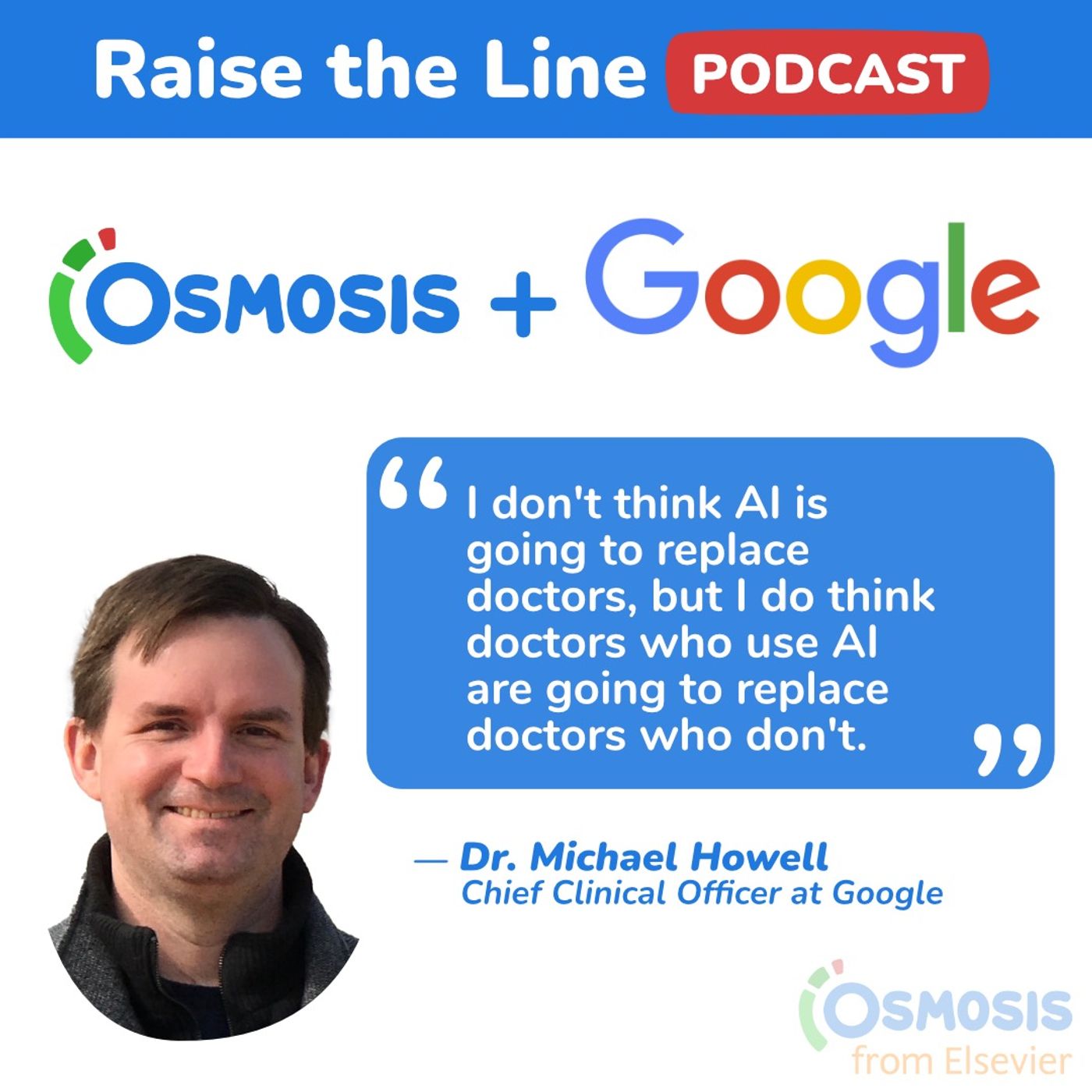
What AI’s Rapid Progress Means for Healthcare and Health Information - Dr. Michael Howell, Chief Clinical Officer at Google
If you like this podcast, please share it on your social channels. You can also subscribe to the series and check out all of our episodes at www.osmosis.org/raisethelinepodcast
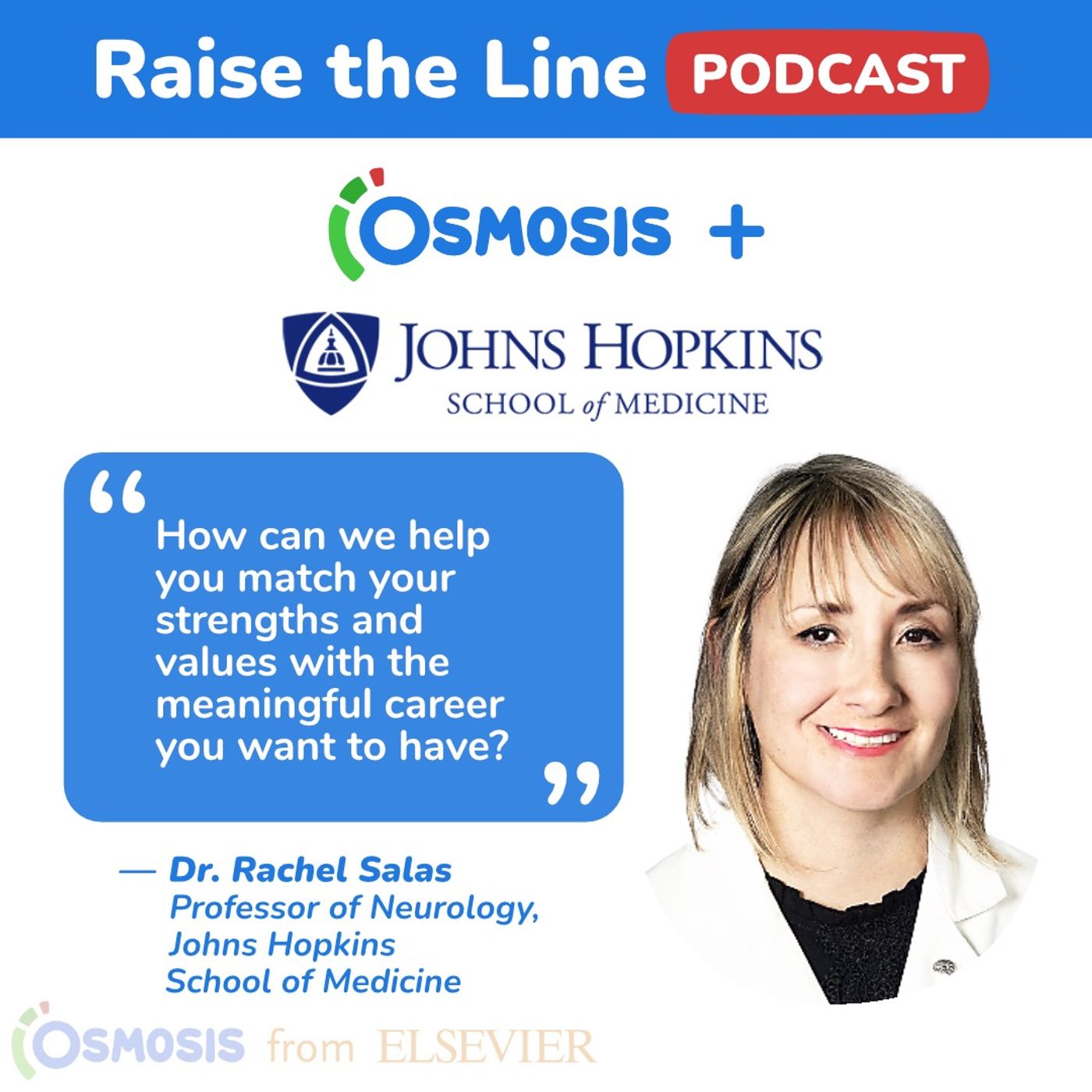
A Strengths-Based Approach to Medical Education & Patient Care - Dr. Rachel Salas, Professor of Neurology at Johns Hopkins University
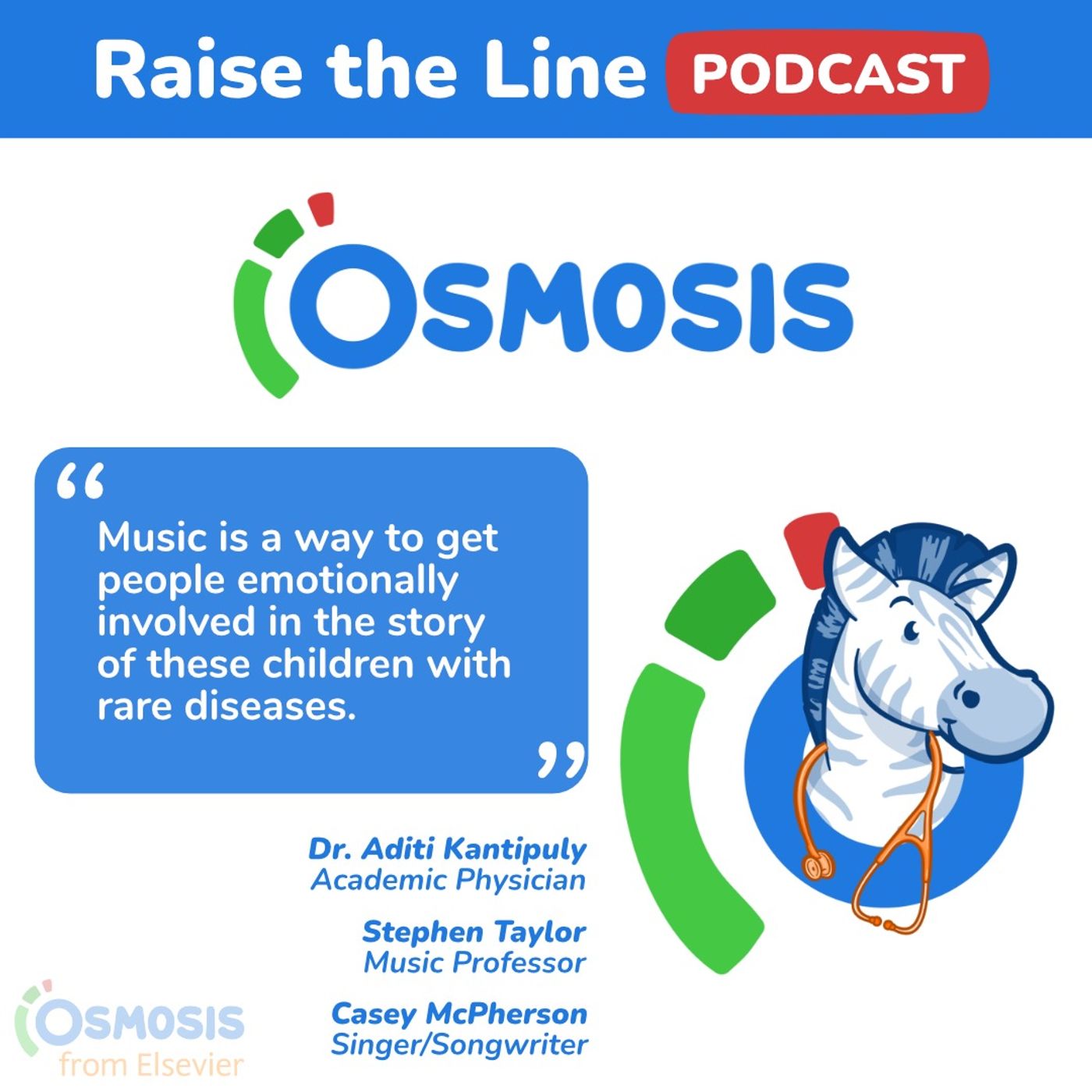
Using Music Based on DNA to Drive Rare Disease Awareness - Dr. Aditi Kantipuly, Professor Stephen Taylor and Casey McPherson
You’re going to hear something in this episode of Raise the Line that you most likely have never heard before: what DNA sounds like. Our guests today all had an interest in musically representing DN…
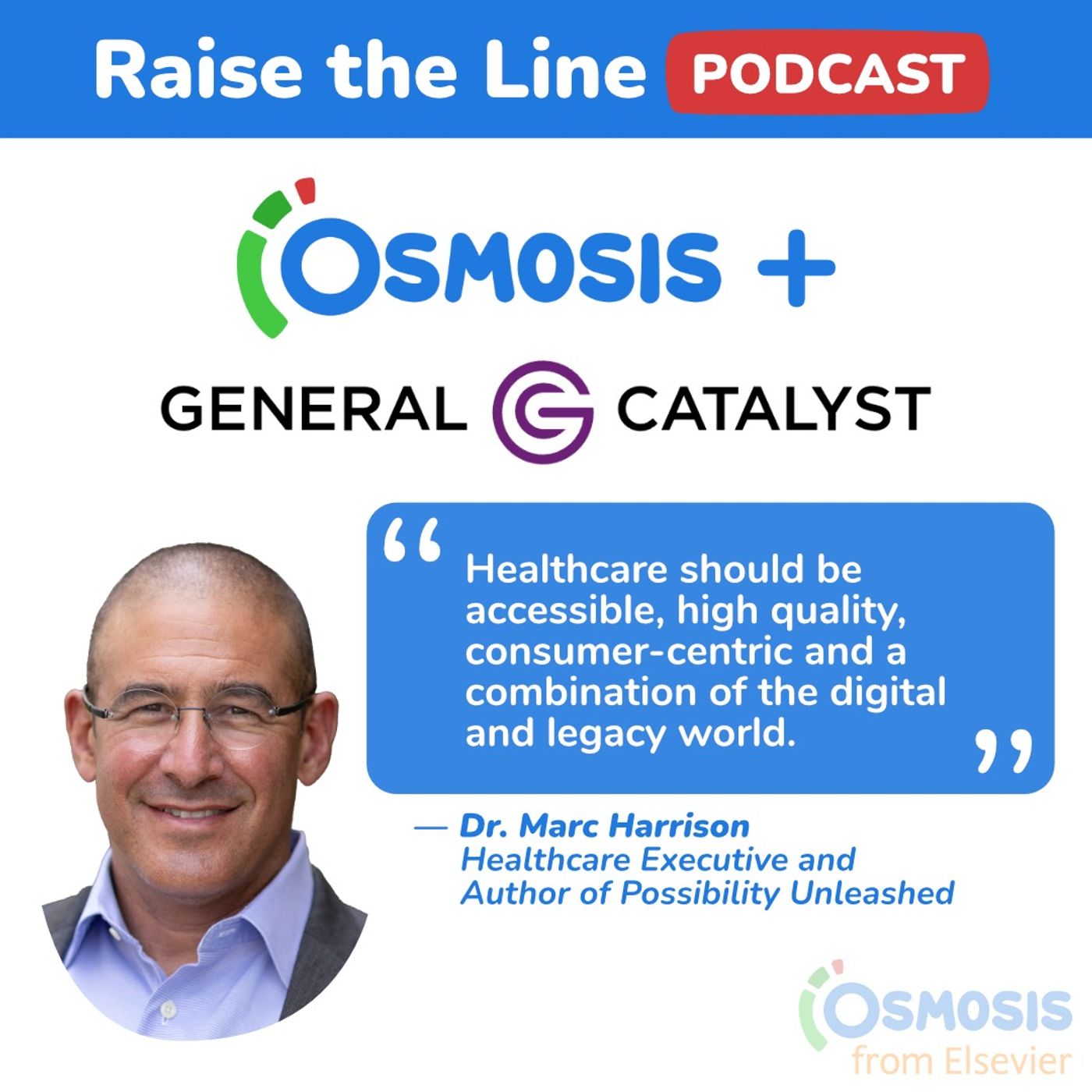
A Clicks & Mortar Future for Healthcare - Dr. Marc Harrison, Healthcare Executive and Author of Possibility Unleashed
“I see health systems being systematically disintermediated by certain payers and some tech companies who are eager to take the easy stuff and leave health systems with really complex, sick and often…
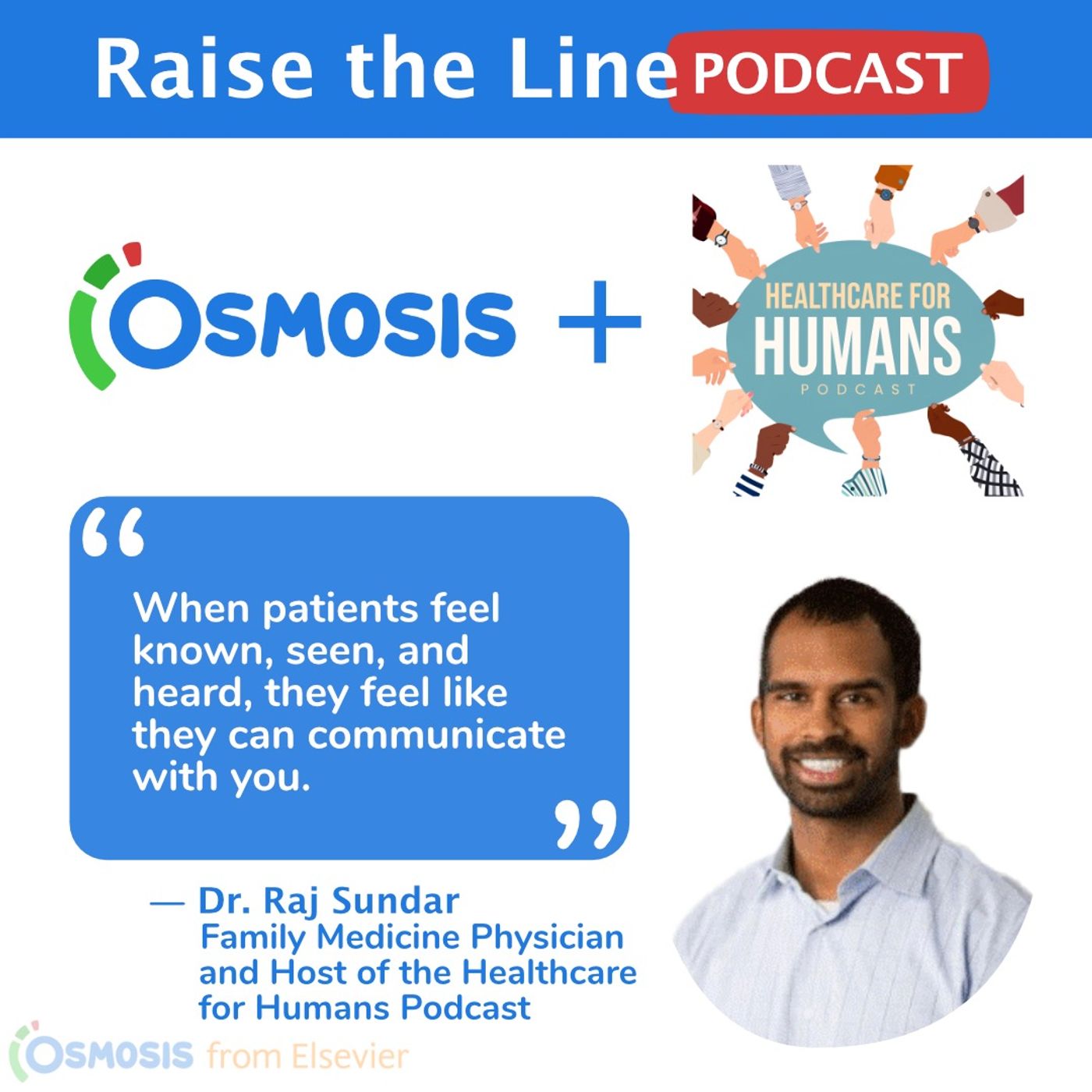
Creating Moments of Cultural Connection and Joy with Patients - Dr. Raj Sundar, Family Medicine Physician and Host of the Healthcare for Humans Podcast
While it’s encouraging that efforts to provide culturally competent care have gained a foothold in the wake of COVID, today’s Raise the Line guest says it is time to expand the conversation to encomp…
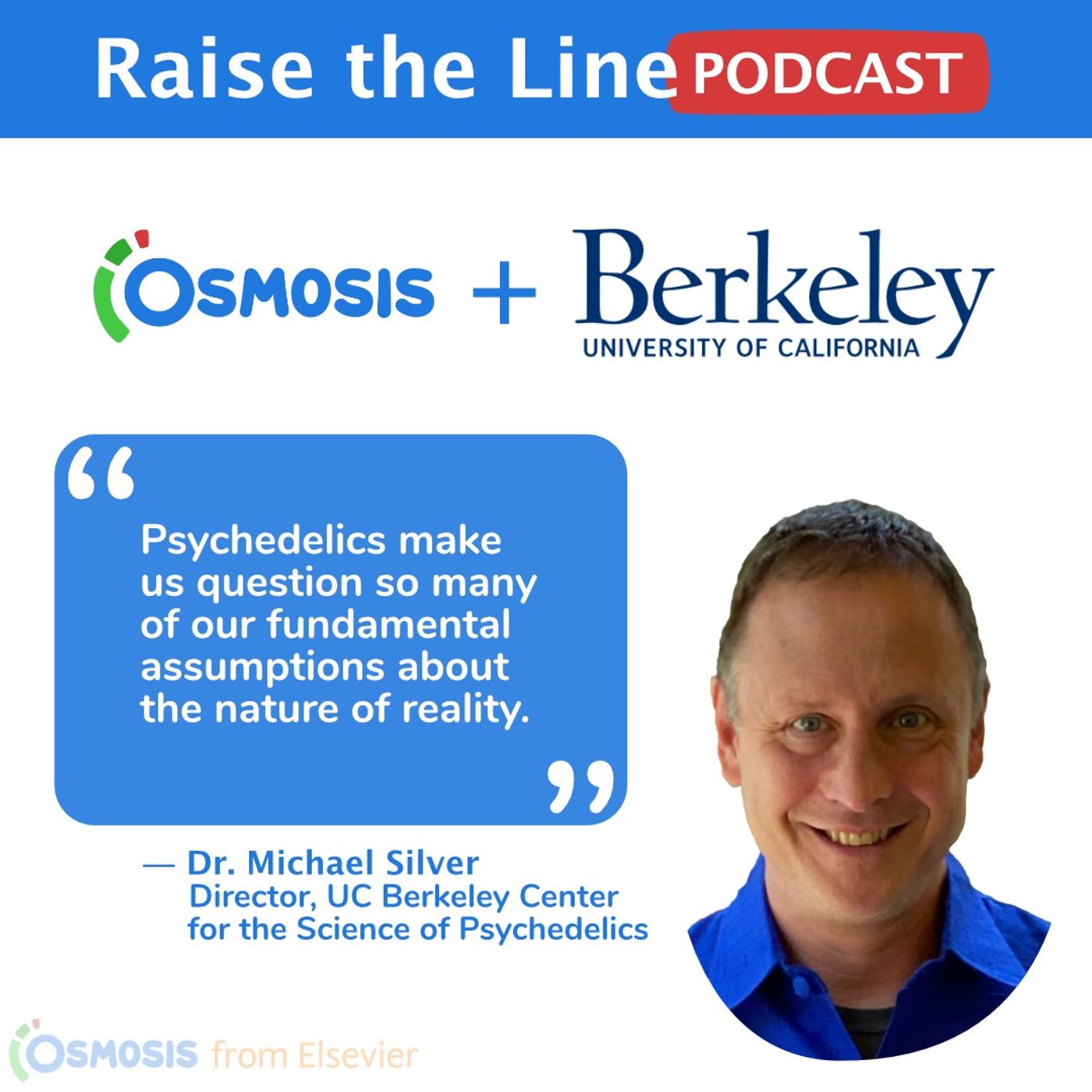
Using Psychedelics to Learn How the Brain Works - Dr. Michael Silver, Director of the UC Berkeley Center for the Science of Psychedelics
Our focus on the renaissance in research into psychedelics continues on this episode of Raise the Line, but instead of looking at their potential therapeutic applications, we're going to hear about u…
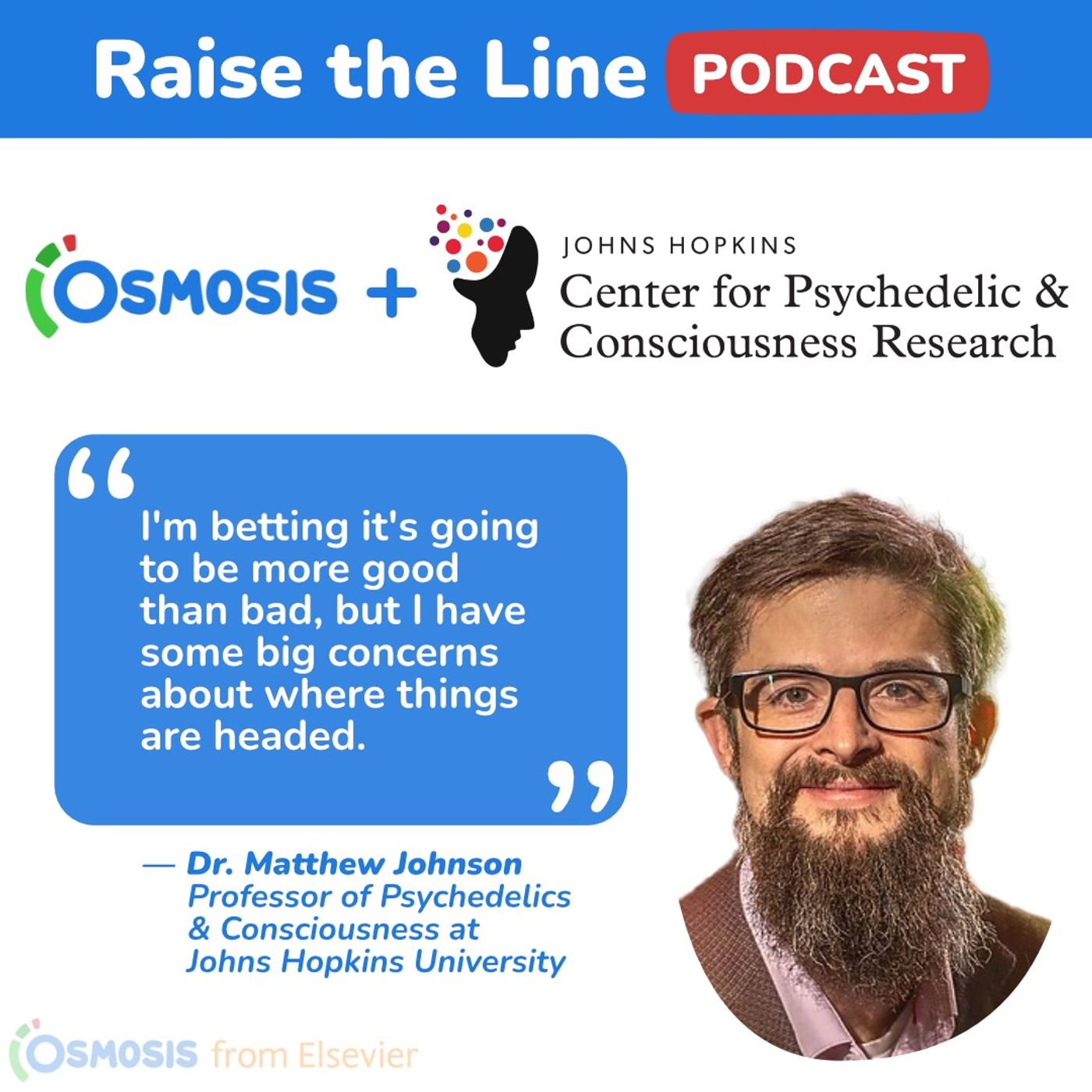
The Promise and Peril of the New Psychedelic Era - Dr. Matthew Johnson, Professor in Psychedelics and Consciousness at Johns Hopkins University
“I'm betting it's going to be more good than bad, but I have some big concerns about where things are headed,” warns Dr. Matthew Johnson of Johns Hopkins University when prognosticating about what im…